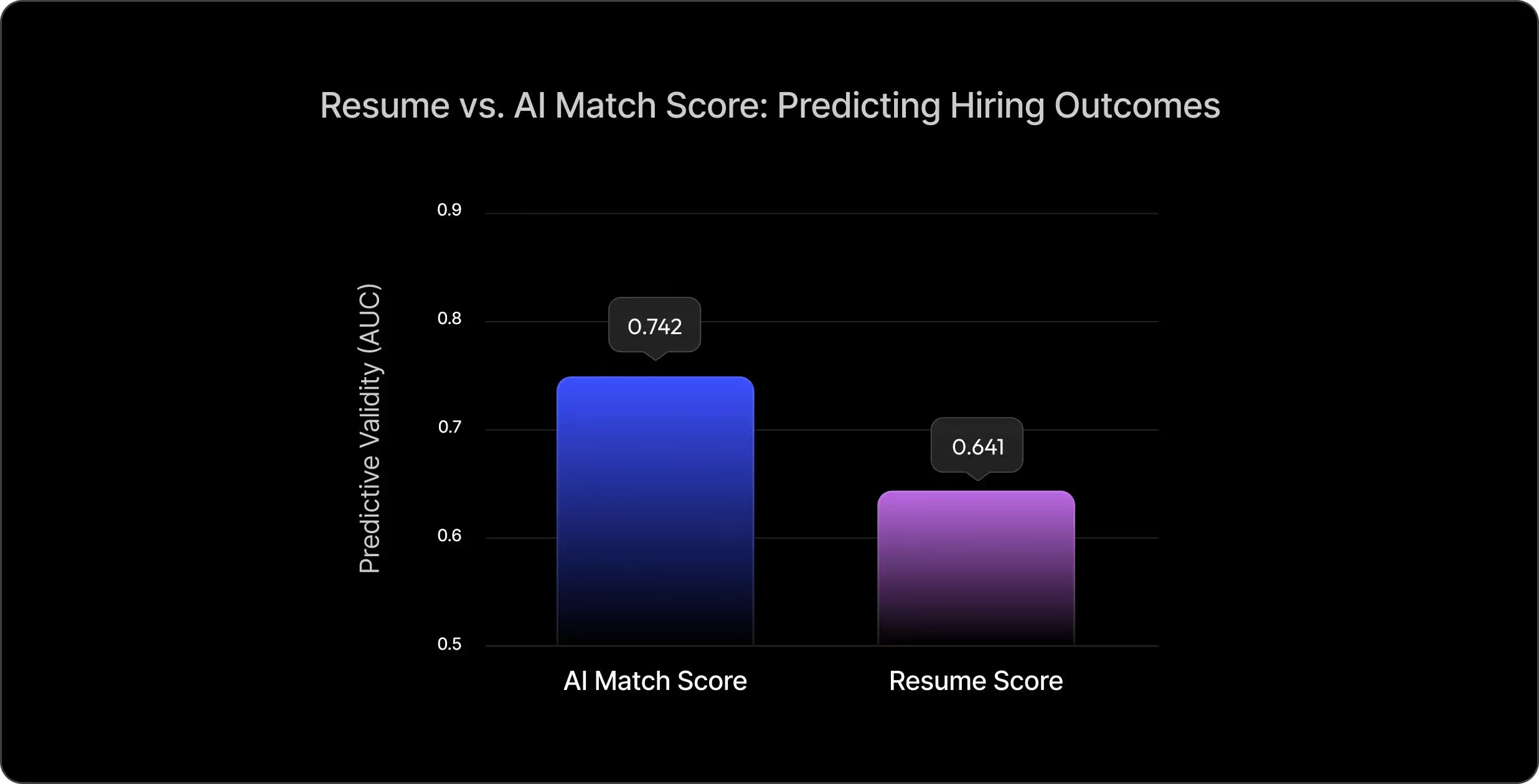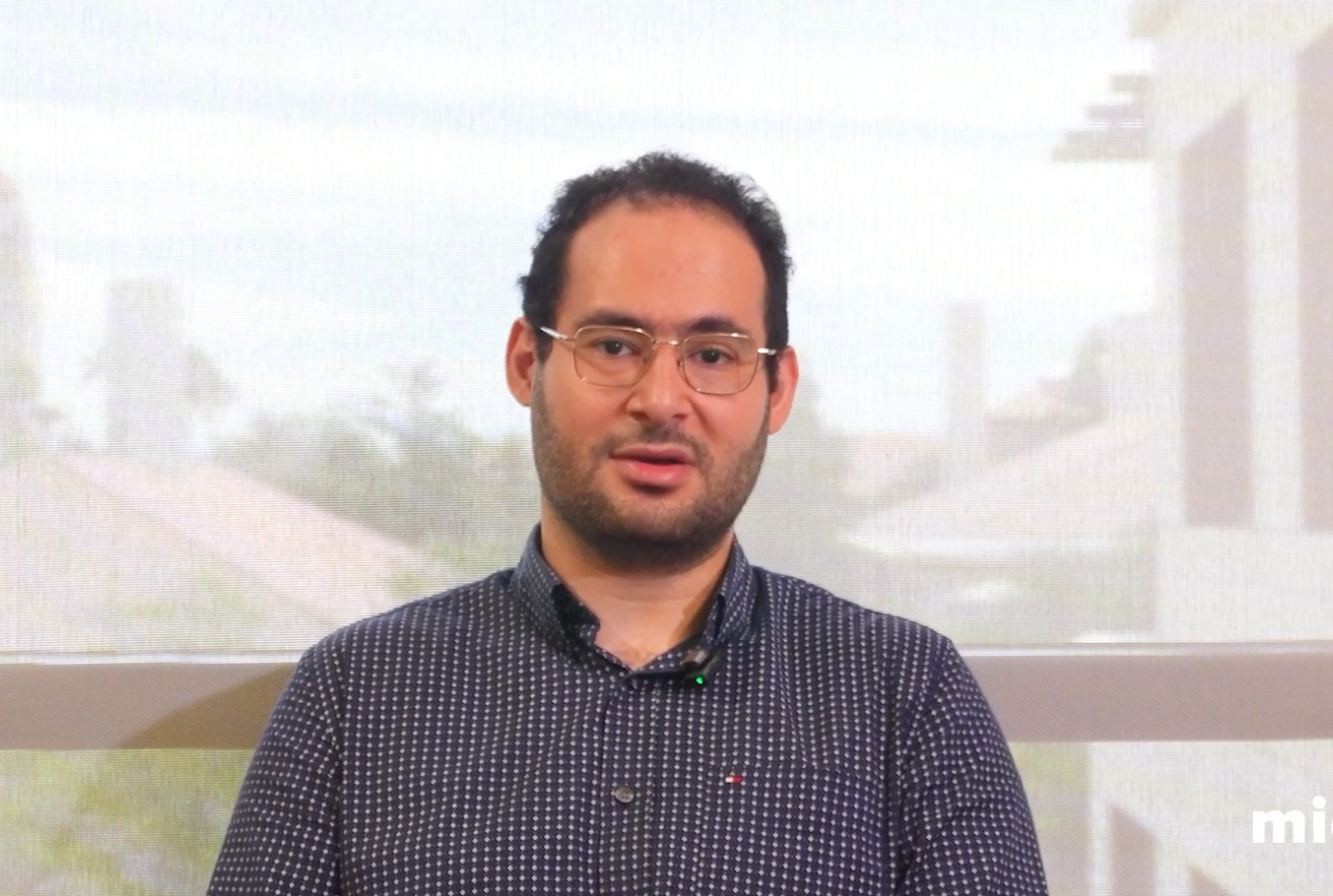.svg)
Back
September 22, 2025
Uncovering Candidate Potential with Multi-Modal AI Assessments
Overview
We compared traditional résumé screening to a comprehensive AI Match Score that integrates résumé analysis, structured interviews, live problem sets, and soft-skills evaluation. Using verified LinkedIn hiring outcomes across 800 candidates, the AI Match Score achieved 16% higher predictive accuracy than résumé scores (AUC = 0.742 vs. 0.641) and identifies nearly twice as many qualified candidates that a résumé-first screen would miss. Crucially, the two signals overlap only weakly (r = 0.19), meaning the AI uncovers talent missed by résumé-first pipelines.
Experiment and pipeline
Every candidate received both assessments: a third-party résumé score and an AI Match Score derived from structured technical and behavioral evaluations plus résumé inputs. Hiring outcomes were tracked via professional profile updates and verified by recruiters. This design allows a direct comparison to find out which signal better predicts who actually gets hired.
Primary results
The AI Match Score sharply outperforms résumé scores:
- Predictive validity
AUC 0.742 vs. 0.641; AP 0.841 vs. 0.735. - Discrimination
Larger effect sizes show that the AI Match Score creates a clearer separation between candidates who were ultimately hired and those who were not, making it more effective at distinguishing true positives from false positives. - Coverage
Nearly twice as many qualified candidates surfaced that résumés alone would have missed.

Candidates with low résumé scores but high AI Match Scores (“hidden gems”) were more likely to be hired, while résumé-inflated profiles that scored well on paper but poorly on AI evaluation rarely succeeded.
Quality and mechanism evidence
The weak correlation between the two scores demonstrates that résumés capture only a fraction of the relevant signal. AI evaluation adds complementary information: validated technical ability, live performance, and soft-skills indicators. This explains why it can both uncover overlooked candidates and filter out polished but unqualified ones.
Interpretation
The findings confirm that résumés are a noisy proxy for ability, while performance-based AI assessment provides a direct, scalable, and more accurate measure of candidate potential. Transitioning to AI Match Scores reduces both false negatives (missed talent) and false positives (inflated résumés), leading to more efficient pipelines and better hiring accuracy. The future of hiring lies not in parsing résumés more finely, but in replacing them with direct, objective, and scalable measures of demonstrated ability.
.webp)
%20(1).jpg)


